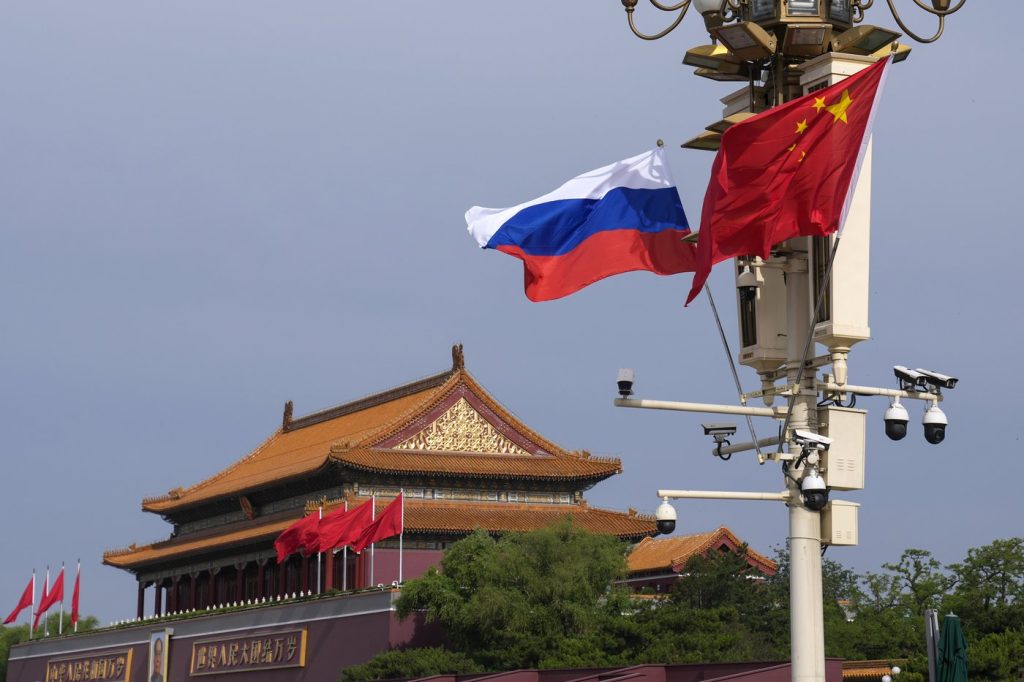In recent trade negotiations in Stockholm, U.S. and Chinese officials have made progress in addressing various trade-related disputes; however, they remain significantly divided on one major issue: the U.S. demand that China cease purchasing oil from Iran and Russia. China's Foreign Ministry firmly stated on X that the country prioritizes its energy security and will not yield to U.S. coercion, reaffirming its commitment to maintaining sovereignty, security, and development interests.
This statement comes amidst a backdrop of ongoing optimism about reaching a trade deal that could stabilize the commercial relationship between the two largest economies globally. The differences over oil purchases reflect China's determination to assert its agenda, especially when energy purchases are intertwined with broader geopolitical strategies.
U.S. Treasury Secretary Scott Bessent, following the talks, acknowledged the seriousness with which China views its sovereignty. He noted that although the U.S. has threatened a 100% tariff on imports of Russian oil, such moves have not derailed the overall negotiation process. Bessent described Chinese negotiators as "tough" but expressed optimism about the possibility of a deal materializing soon.
Gabriel Wildau, managing director at Teneo, expressed skepticism that President Donald Trump would follow through on the extreme tariff threat, suggesting that such actions would jeopardize the progress made thus far in negotiations. Meanwhile, the U.S. aims to cut off oil sales from Russia and Iran to curtail their military funding, particularly as the conflict in Ukraine persists and Iran remains active in supporting militant groups across the Middle East.
Historically, China has shown resilience in its trade relations with the U.S., being the only country to retaliate against U.S. tariffs imposed by Trump earlier this year. Tu Xinquan, a director at the China Institute for WTO Studies, noted that China's refusal to submit to U.S. pressure remains consistent and steadfast. He speculated that China may not see the U.S. as fully committed to preventing Russian aggression, thus emboldening its position on oil purchases.
Scott Kennedy, a senior adviser at the Center for Strategic and International Studies, indicated that inconsistencies in U.S. foreign policy regarding Russia might also affect China's willingness to comply with U.S. demands. He suggested that China might utilize the situation to negotiate other concessions from the Trump administration, reinforcing its own energy dependency while also maintaining solid ties with Russia.
Danny Russel, a distinguished fellow at the Asia Society Policy Institute, highlighted that China perceives itself as having the upper hand in negotiations. He argued that rejecting the U.S. demand to halt oil purchases from Iran and Russia would not significantly jeopardize a potential trade deal but might introduce some tension along the way. For China, importing oil from Russia at discounted prices is essential for maintaining its economic stability.
According to a 2024 report from the U.S. Energy Information Administration, China is the primary destination for Iranian oil, accounting for around 80% to 90% of its exports, equating to over 1 million barrels per day. Furthermore, data from the KSE Institute indicated that Chinese imports of Russian oil surged 20% in April alone, bringing in over 1.3 million barrels per day.
In response to similar Russian oil purchasing trends, the Trump administration has indicated plans to impose tariffs on Indian goods as well, emphasizing that maintaining the status quo of energy trade with Russia is unacceptable. Senator Lindsey Graham is advocating for sanctions on countries that continue to purchase oil and other resources from Russia, aiming to disrupt the financial mechanisms sustaining Moscow's military actions.
Graham has introduced legislation to sanction not only Russia but also any country that knowingly engages in purchasing resources from them, emphasizing the need to counteract China's strategic dealings with Russia. As bipartisan support gathers in Congress for such measures, action remains pending, awaiting presidential directives or further negotiations.












